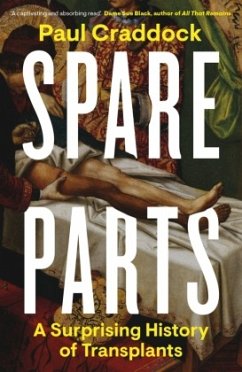
Charles-Edouard Brown-Séquard
The Biography of a Tormented Genius
Versandkostenfrei!
Versandfertig in 6-10 Tagen
76,99 €
inkl. MwSt.
Weitere Ausgaben:

PAYBACK Punkte
38 °P sammeln!
Genius and dilettantism often go hand in hand. Nowhere is this truer than in the life of Charles-Edouard Brown-Séquard, the bilingual physician and neurologist who succeeded Claude Bernard as the Chair of Experimental Medicine at the College de France in Paris after having practiced in Paris, London and in the USA, especially in Harvard.For most men, making one discovery of global importance would have sufficed to satisfy their curiosity and self-image. Not so Brown-Séquard. His explanation of the neurological disparity following the hemi-section of the spinal cord was a unique achievement t...
Genius and dilettantism often go hand in hand. Nowhere is this truer than in the life of Charles-Edouard Brown-Séquard, the bilingual physician and neurologist who succeeded Claude Bernard as the Chair of Experimental Medicine at the College de France in Paris after having practiced in Paris, London and in the USA, especially in Harvard.
For most men, making one discovery of global importance would have sufficed to satisfy their curiosity and self-image. Not so Brown-Séquard. His explanation of the neurological disparity following the hemi-section of the spinal cord was a unique achievement that added his name to the syndrome and made him immortal. Yet, the demons of his mind tormented him in his endless search for medical truths and drove him to explore other phenomena, seeking to explain and remedy them.
This unique biography shows for the first time the conflict between his professional and personal life, and should appeal to all students of medical history and psychology.
For most men, making one discovery of global importance would have sufficed to satisfy their curiosity and self-image. Not so Brown-Séquard. His explanation of the neurological disparity following the hemi-section of the spinal cord was a unique achievement that added his name to the syndrome and made him immortal. Yet, the demons of his mind tormented him in his endless search for medical truths and drove him to explore other phenomena, seeking to explain and remedy them.
This unique biography shows for the first time the conflict between his professional and personal life, and should appeal to all students of medical history and psychology.














